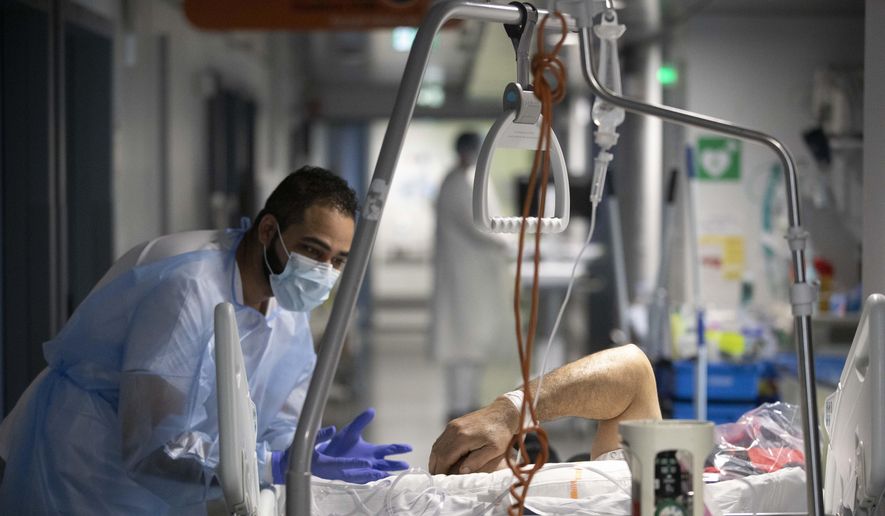The COVID-19 pandemic in Europe could move into a new phase in which it is more manageable and rises seasonally, a top World Health Organization official said Sunday, reflecting similar optimism in the U.S. once the omicron wave subsides.
“It’s plausible that the region is moving towards a kind of pandemic endgame,” WHO Europe Director Hans Kluge told Agence France-Presse.
He said the omicron wave could infect up to 60% of Europeans by March.
“There will be for quite some weeks and months a global immunity, either thanks to the vaccine or because people have immunity due to the infection,” he told the wire service. “We anticipate that there will be a period of quiet before COVID-19 may come back towards the end of the year, but not necessarily the pandemic coming back.”
His comments reflected the guarded optimism of Dr. Anthony Fauci, who said the situation in the U.S. is easing but will be felt unevenly across the nation in the weeks ahead. Average daily case counts have dropped from over 800,000 to below 700,000, so hospitalizations should ease in the coming weeks.
“If the pattern follows the trend that we’re seeing in other places, such as the Northeast, I believe that you will start to see a turnaround throughout the entire country,” Dr. Fauci, director of the National Institute of Allergy and Infectious Diseases, told ABC’s “This Week.” “So things are looking good. We don’t want to get overconfident. But they look like they’re going in the right direction right now.”
The omicron variant spreads more rapidly than the delta strain but appears to be less severe, offering hope the virus can be managed like other respiratory illnesses moving forward.
Scientists caution that managing the COVID-19 crisis will depend on whether a new, dangerous variant emerges.
WHO Director-General Tedros Adhanom Ghebreyesus said Monday that “conditions are ideal” for new variants to emerge so it is important to vaccinate at least 70% of the globe this year and improve efforts to test and sequence virus samples.
“Learning to live with COVID cannot mean that we give this virus a free ride,” he said. “It cannot mean that we accept almost 50,000 deaths a week from a preventable and treatable disease.”
• This story is based in part on wire service reports.
For more information, visit The Washington Times COVID-19 resource page.
• Tom Howell Jr. can be reached at thowell@washingtontimes.com.




Please read our comment policy before commenting.